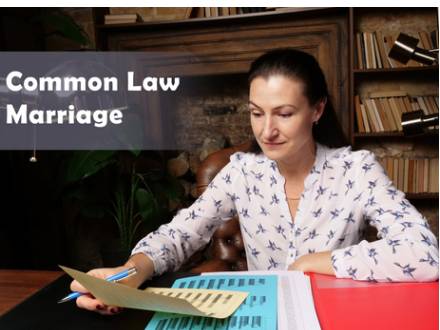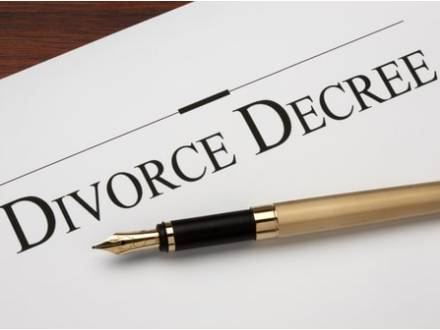Recent Blog Posts
Recognizing and Addressing Parental Alienation
 When parents divorce, life can be challenging for all those involved, particularly the children. While most parents want what is best for their children, some seem unable to resist speaking negatively about the other parent. While this is rarely productive in any way, it can be especially damaging to children. An American psychiatrist, Dr. Richard Gardner, introduced the phrase "parental alienation syndrome" in 1985, defining it as a childhood disorder arising almost exclusively during child custody disputes.
When parents divorce, life can be challenging for all those involved, particularly the children. While most parents want what is best for their children, some seem unable to resist speaking negatively about the other parent. While this is rarely productive in any way, it can be especially damaging to children. An American psychiatrist, Dr. Richard Gardner, introduced the phrase "parental alienation syndrome" in 1985, defining it as a childhood disorder arising almost exclusively during child custody disputes.
Gardner described children being "programmed" by one parent to reject, fear, dislike, or hate the other parent. Parental alienation can be obvious or more insidious, but the end result is the same – to damage the child’s relationship with the other parent. If one parent believes the other is deliberately waging a parental alienation war against them during the allocation of parental responsibilities, it is important to address it quickly before it can spiral out of control. A Will County, IL parental responsibilities attorney can help recognize and address parental alienation.
Is My Texas Common-Law Marriage Valid in Illinois?
 Although nine states currently recognize common-law marriage, Illinois is not one of them. What happens, then, when a couple with a recognized common-law marriage in another state – like Texas – moves to Illinois? Is the common-law marriage recognized? What if the couple wants to divorce? Broadly speaking, a common-law marriage is not considered a "real" marriage in the state of Illinois.
Although nine states currently recognize common-law marriage, Illinois is not one of them. What happens, then, when a couple with a recognized common-law marriage in another state – like Texas – moves to Illinois? Is the common-law marriage recognized? What if the couple wants to divorce? Broadly speaking, a common-law marriage is not considered a "real" marriage in the state of Illinois.
That being said, technically speaking, Illinois law does recognize a common-law marriage from another state. In practice, however, there appears to be a large body of evidence that speaks to the contrary, which means it can be very challenging to prove a common-law marriage in a state that does not recognize that type of marriage.
The tricky part of this equation might be proving that you did, in fact, have a valid common-law marriage in Texas or another state that recognizes common-law marriages. If you are facing a similar situation, speaking to a knowledgeable Will County, IL family law attorney can help you determine where you stand in this situation.
How Important Are Witnesses in Your Illinois Divorce?
 If your divorce is even slightly more complicated than a divorce where both parties agree on virtually everything, then you may need witnesses during the divorce process. One of the top reasons for a witness would be when one party calls in a third party as a character witness. A character witness is someone who knows you well and can speak to your overall character.
If your divorce is even slightly more complicated than a divorce where both parties agree on virtually everything, then you may need witnesses during the divorce process. One of the top reasons for a witness would be when one party calls in a third party as a character witness. A character witness is someone who knows you well and can speak to your overall character.
If your spouse is questioning your morals, ethics, or level of responsibility during the allocation of parental responsibilities, you may need one or more character witnesses. If you are making certain allegations against your spouse, then you might also call witnesses to support those allegations. For example, if you claim your wife is an alcoholic, you might call witnesses who have firsthand knowledge that the claim is true.
Four Common Myths About Your Illinois Divorce
 Most of us have heard the statistics that claim half of all marriages will end in divorce. While that was true in the early 1980s, divorce has been on a steady decline since then. Today, in the United States, about 39 percent of all marriages will end in divorce.
Most of us have heard the statistics that claim half of all marriages will end in divorce. While that was true in the early 1980s, divorce has been on a steady decline since then. Today, in the United States, about 39 percent of all marriages will end in divorce.
The drop in divorce rates is largely related to Millennials, who appear to be more selective about their life partners, marry later, and are more likely to remain married. Some of these younger couples say they want to be more financially secure when they marry, while others are finishing up their education, or are laser-focused on getting their careers off the ground.
In any case, the 50 percent divorce rate that is still claimed is nothing more than a myth – and there are plenty of those myths circulating regarding divorce. When you need solid, knowledgeable divorce guidance, you need a Will County, IL divorce attorney from Law Office of Ronald L. Hendrix, P.C.. We can help you with the divorce process, answer your questions, and advocate on your behalf.
How Co-Parents Can Make the Holidays Special for Their Child
 If you and your ex have children, you will likely be dealing with child issues until they are grown. Because of this, it is essential that you learn to co-parent peacefully regardless of how you feel about one another. The holidays can be difficult for all those involved. If the allocation of parental responsibilities dictates that your children will be spending a major holiday with your ex, it can be emotionally wrenching to think about Thanksgiving or Christmas without your children.
If you and your ex have children, you will likely be dealing with child issues until they are grown. Because of this, it is essential that you learn to co-parent peacefully regardless of how you feel about one another. The holidays can be difficult for all those involved. If the allocation of parental responsibilities dictates that your children will be spending a major holiday with your ex, it can be emotionally wrenching to think about Thanksgiving or Christmas without your children.
This can be a painful reminder of when you, your ex, and your children were a family. If you find yourself in this situation, it is time to set your own sadness or depression aside and work with your ex to make sure your children have a happy holiday season. In addition to the tips and suggestions below, a Will County, IL family law attorney from Law Office of Ronald L. Hendrix, P.C. can help if you have legal questions related to your divorce or the allocation of parental responsibilities.
Can Assets Be Frozen During an Illinois Divorce?
 A National Endowment for Financial Education poll analyzed "financial infidelity" among married adults. Two out of five of the adults polled admitted they had committed some type of financial deception during their marriage. Financial infidelity includes hiding purchases, money, or accounts or lying about debt owed or income earned.
A National Endowment for Financial Education poll analyzed "financial infidelity" among married adults. Two out of five of the adults polled admitted they had committed some type of financial deception during their marriage. Financial infidelity includes hiding purchases, money, or accounts or lying about debt owed or income earned.
Men were found to be more likely than women (47 vs. 39 percent) to report committing financial deception. While it would be nice to be able to trust one’s spouse during a divorce, realistically, if spouses are not transparent with finances during the marriage, they are unlikely to be transparent during the divorce, during the division of assets.
By the time a divorce is in the works, spouses may have little trust in one another, particularly when it comes to finances. One spouse may believe the other is already hiding assets or will hide or remove assets. As a result, one or both spouses can ask the court to freeze marital assets during the divorce until those assets can be appropriately divided and distributed.
How Is an Illinois Military Divorce Different?
 According to Census Bureau data, those in the military have the highest divorce rate of any career field, at roughly 4.8 percent. When one or both spouses are members of the Armed Services and a divorce is at hand, there are extra challenges. Female service members have an even higher rate of divorce, at 7.4 percent. These divorce rates compare to the "average" divorce rate of 2.5 percent.
According to Census Bureau data, those in the military have the highest divorce rate of any career field, at roughly 4.8 percent. When one or both spouses are members of the Armed Services and a divorce is at hand, there are extra challenges. Female service members have an even higher rate of divorce, at 7.4 percent. These divorce rates compare to the "average" divorce rate of 2.5 percent.
One cause of military divorce could be that service members tend to marry at a younger age than the general population, with more than half of our troops married before they turn 25. If you or your spouse are an Armed Services member, there are unique issues associated with a military divorce. Having an experienced Will County, IL divorce attorney from Law Office of Ronald L. Hendrix, P.C. can help you get through this difficult time with the best possible outcome.
Could My Husband Receive Alimony When He Refuses to Work? | Illinois
 Perhaps you are a hardworking person whose husband has been less than hardworking throughout your marriage. In fact, this may be one of the reasons you have decided to divorce him. He may have had many work opportunities throughout your marriage but has declined to take a single one as he waits for the "perfect job."
Perhaps you are a hardworking person whose husband has been less than hardworking throughout your marriage. In fact, this may be one of the reasons you have decided to divorce him. He may have had many work opportunities throughout your marriage but has declined to take a single one as he waits for the "perfect job."
Now, although he is perfectly able-bodied, educated, and trained, he has decided he would rather continue to let you financially support him via spousal support, even after the divorce. What can you do? Alimony, more commonly known today as spousal support or spousal maintenance, is often an area of contention between spouses. The spouse ordered to pay spousal support is unlikely to be happy about it, and the spouse receiving spousal support may believe they deserve more.
Illinois determines whether spousal support is appropriate by using a list of factors along with state statutes that outline how spousal support is calculated. If you are concerned that your spouse will receive spousal support even though he or she refuses to work, it is time to speak to an experienced Naperville, IL divorce lawyer from the Law Office of Ronald L. Hendrix, P.C..
Is Your Teen Addicted to TikTok?
 The Illinois Attorney General recently joined 13 other states in a lawsuit against TikTok, alleging harmful business practices that target children and teens negatively impact their mental health. The lawsuit alleges that TikTok intentionally designed its social media platform to keep children focusing their time and attention on the site.
The Illinois Attorney General recently joined 13 other states in a lawsuit against TikTok, alleging harmful business practices that target children and teens negatively impact their mental health. The lawsuit alleges that TikTok intentionally designed its social media platform to keep children focusing their time and attention on the site.
A nationwide investigation against TikTok, launched in 2022, resulted in allegations against the site, including the potential for self-harm, anxiety, depression, sleep deprivation, and even suicide among children and teens. According to the investigation, TikTok aims to keep users on the platform as long as possible. The U.S. Surgeon General determined that teens who spend more than three hours a day on social media have twice the risk of mental health issues.
Divorced parents can experience serious disagreements about how much time their teens should be allowed on social media sites, including TikTok. Divorce is tough, and the decisions regarding the allocation of parental responsibilities and parenting time can be even tougher, especially when parents have significantly differing opinions about the best way to raise their children. A Will County, IL parental responsibilities lawyer from Law Office of Ronald L. Hendrix, P.C. can help resolve these disagreements.
Co-Parenting a Special Needs Child After an Illinois Divorce
 At least 20 percent of U.S. homes have a child with a disability, special healthcare needs, or a chronic illness. The challenges that arise when parenting a special needs child can be the reason for a divorce or one of many reasons that become the final "push" over the edge for a couple. The divorce rate for those with an autistic child is 80 percent – considerably higher than the divorce rate for parents without an autistic child.
At least 20 percent of U.S. homes have a child with a disability, special healthcare needs, or a chronic illness. The challenges that arise when parenting a special needs child can be the reason for a divorce or one of many reasons that become the final "push" over the edge for a couple. The divorce rate for those with an autistic child is 80 percent – considerably higher than the divorce rate for parents without an autistic child.
When a couple with a special needs child divorces, there are additional issues beyond the standard custody, visitation, and child support factors that must be decided. The child’s needs, whether they are social, educational, psychological, or medical, must be fully addressed in a comprehensive parenting plan following the allocation of parental responsibilities.

















